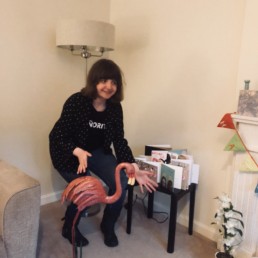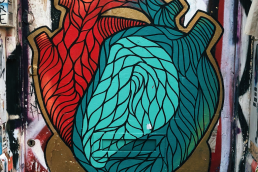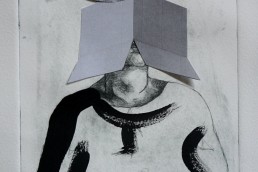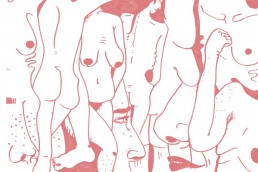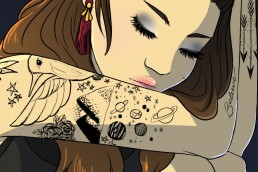By Jess McGill (The Recovery Ninja)
Image credit, Nadine Shaabana via Unsplash
Coping with OCD (Obsessive Compulsive Disorder) at school was hard; I felt shame and embarrassment. I knew I had these intrusive thoughts in my mind, but nobody else knew about it. When I was carrying out checking compulsions I would think to myself ‘what must this look like?’ And that isolated feeling, coupled with self-critical thoughts about my physical appearance, made me want to hide away somewhere.
Especially in the later years of school, everyone tends to go through times of being self-conscious about the way they look — so I felt very aware that maybe I wasn’t alone in feeling this way.
However, that does not mean that the critical comments about our young and growing appearances, especially as women, are acceptable. At school for me I experienced comments, from other peers, such as:
“Sort your hair, it looks a mess.”
“Why do you always wear a jumper over your shirt like that to cover up?”
“You should really wear makeup!”
And I took on these comments and critical thoughts and just began to accept them. I didn’t have the ability to focus on keeping up with being a teenager, especially when I had distressing OCD thoughts about bad things happening to everyone around me. So it was a damaging combination — the pressure of how to appear on the outside, and how I felt inside my head, looking in.
it was a damaging combination — the pressure of how to appear on the outside, and how I felt inside my head, looking in.
The intrusive OCD thoughts about eating and treating myself, and my weight, created this thick blanket that I wanted to just hide behind when I got home. Yet, hiding didn’t fix it. And it doesn’t! Avoidance is what the doubters, anxiety and the self-critical thoughts want you to do! And the pain is not worth believing — I understand that now, and I have the evidence.
After leaving school, my OCD became very extreme, and being underweight and housebound had me admitted to hospital. And that’s when I could finally see the impact that mental health has on physical health. My appearance was a small, young and drained version of myself. The thoughts and difficult experiences had taken over — but I wasn’t going to allow them to rule me.
In treatment and therapy, early on I identified OCD as a slug. Yes, a slug. A slug that was trying to invade my life — until there was none left in me. And upon this realisation, I was determined that I wasn’t going to allow further shame of what my illness had done to me to impact my health anymore. It all sounds very extreme, but this is a mental illness, that had tried to take my life. It was a battle, and still is. I had to learn how to survive it — and this is where the idea of me looking like and being a ‘warrior’ to fight it, came from — in my recovery.
Self-critical thoughts are a reality of human nature, but it’s key to realise these expectations of physical appearance and body image are just thoughts — and not facts.
So, what does a ‘warrior’ look like? A warrior can be anything. Okay you may have a mental illness, critical thoughts about your body, comparing yourself or the ‘shoulds’ that come from society’s constructs on physical appearance. But do you know what? It doesn’t mean that you have to take them, and let them in or win. Self-critical thoughts are a reality of human nature, but it’s key to realise these expectations of physical appearance and body image are just thoughts — and not facts. It’s easy to say that, but challenging the doubts and criticism around you, whether from internal thoughts or external sources, is key in realising that you are a warrior. And as a warrior you can be as and how you want.
Confidence and self are things that I’m building on again, and it’s a persistent fight of knowing and believing that I am okay as I am — in how I look and feel. So if you are struggling with things like I did, know that you are worthy of being a warrior. By just even pretending to be a super-heroine figure might make you imagine confidence and, after practice, the rest will then eventually come into place. I know it’s harder than it sounds, but with therapy and talking about it, some can get to that point’.
Things to help in looking like a warrior, from experience (yes, really, these are tried and tested) include: standing safely up on a chair, in a confident ninja-warrior pose, trying on that leather jacket that makes you look like a cool film-star icon and telling those mean, nasty thoughts exactly where to go — even in front of the mirror in the middle of a high street store…
Look like a warrior, feel like a warrior; because even if you don’t know it, you are a warrior.
Jess McGill
Recovering from Extreme OCD and severe anxiety, this ninja warrior wants to become a writer and film-maker exploring attitudes towards mental illness in society today, as well as eventually being able to help others with OCD. Actual chatterbox with a love of film, greetings cards, and fierce femmes.

